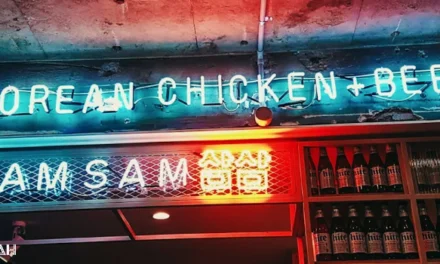Indomie is an instantly recognizable brand of instant noodles that is hugely popular across the globe. But with so many flavors and variants, halal consumers may wonder: is all Indomie halal? This article will delve into Indomie’s ingredients, production standards, and halal certification to determine if these convenient noodles adhere to Islamic dietary guidelines.
An Introduction to the Indomie Brand
First, let’s start with some background on what exactly Indomie is. Indomie is an Indonesian brand that manufactures instant noodles and noodle soup dishes. Among instant noodle manufacturers, they are the largest, offering their products worldwide.
Their most popular item is likely the mi goreng line of fried noodles, offered in original chicken and spicy flavors. Mi goreng translates to “fried noodles” in Indonesian. The original mi goreng flavor features a stir-fried noodle block with chicken seasoning powder to mix into the noodles. This gives the noodles a tasty chicken and savory flavor profile once prepared.
The equally popular spicy mi goreng flavor packs a fiery punch of chili pepper spice blended into the chicken seasoning powder. Both the original and spicy mi goreng make for quick, convenient flavor-packed meals and snacks for those who love Indonesian-style noodles.
But Indomie offers more than just their famed mi goreng instant noodles. They also sell products like:
- Other instant noodle lines including soto mie noodles modeled after the traditional Indonesian chicken soup dish, and sarimi curly noodles
- Noodle soup cups – often with an Asian style broth like tom yum or Oyakodon made with chicken and egg
- Vegetable flavors made without any animal derivatives to cater to vegetarian consumers
- Regional flavors tailored to local tastes throughout Southeast Asia, the Middle East, Africa, Australia, and North America
Now that you know a bit more about the variety within the Indomie brand and their range of instant noodle products, let’s examine the key question…
Is Indomie Granted Official Halal Certification?
Yes, Indomie noodles products are all halal certified by the Indonesian Ulema Council (MUI). MUI provides halal certification services in Indonesia, ensuring food products meet Islamic dietary guidelines according to Muslim religious law.
As the major instant noodle producer based in Indonesia, all of Indomie’s instant noodle offerings hold MUI halal certification. This includes flavors containing chicken, beef, seafood or vegetables, along with all their mi goreng creations even with the chicken seasoning.
MUI certifies more than just the ingredients too – they audit the entire supply and production chain including:
- Ingredients procurement
- Food preparation facilities
- Processing equipment
- Packaging plants
- Storage warehouses
- Transport vehicles
By certifying the whole system spanning ingredients through distribution, MUI verifies that Indomie instant noodles adhere to halal standards every step of the way before reaching consumer tables.
Indomie’s halal compliance also guarantees their products are:
- Free from pork, pork derivatives, and alcohol
- Made without improper processing aids or other intoxicants that would violate Muslim diet restrictions
- Prepared using production equipment sanctioned for halal food making
With MUI’s official halal seal displayed proudly on packs, Muslim consumers everywhere can feel comfortable and confident that Indomie instant noodle products meet established Islamic guidelines.
Who is MUI and What Authority Do They Have for Halal Certification?
As we’ve established, the Indonesian Ulema Council (MUI) conducts halal certification and audits on Indomie products made by one of Indonesia’s largest food companies. But what exactly is MUI and what powers do they have to deem food halal?
MUI stands for Majelis Ulama Indonesia in the Indonesian language. In English, it translates directly to the Indonesian Ulema Council. Ulema refers to a body of Muslim scholars and religious authorities. Hence, MUI consists of influential Islamic faith leaders in Indonesia.
As a predominantly Muslim nation, Indonesia relies on MUI to establish halal standards and certify that products adhere to Islamic law. MUI provides their halal certification services to food, beverage and pharmaceutical companies operating in Indonesia.
For halal compliance, MUI ensures companies meet requirements like:
- Sourcing permissible ingredients free from pork and alcohol
- Following approved manufacturing processes per halal regulations
- Using production machinery specially cleaned per halal guidelines
- Packaging, storing and transporting the products in facilities that prevent contamination with any non-halal substances
MUI also conducts periodic audits and inspections on factories and supply chains they’ve already granted halal certification to ensure standards do not lapse over time. Any violations could lead them to revoke certification until corrected.
So MUI certainly holds authoritative power in Indonesia to dictate halal protocols and certify products that meet the criteria. Their blessing gives Indonesian Muslim consumers faith to trust food products display the MUI halal label.
Indomie Flavors to Suit Any Taste – From Indonesian Favorites to International Varieties
As an international brand but with origin in Indonesia, Indomie offers distinct flavors suited to local tastes not just in their Southeast Asian stronghold, but also throughout regions across:
- Australiasia (Australia and New Zealand)
- The Middle East
- Africa
- North America
Indomie first looks at popular flavors in their native Indonesia to develop instant noodle varieties that appeal to diverse populations across urban and rural areas. Their products give a taste of some of Indonesia’s favorite foods in convenient noodle form.
The basic mi goreng line comes with over 30 flavor varieties including:
- The original fried noodle block taste
- Spicy sambal goreng mi goreng with chili pepper kick
- Rendang featuring Indonesian-style beef stew flavoring mixed into the fried noodles
- Opor ayam chicken in rich coconut curry broth
- Soto ayam chicken noodle soup
- Bakso meatball soup
- Vegetable flavors like rice noodles and green bean porridge
They also provide multiple vegetarian and non-fried options appealing to health-conscious diners avoiding oil. For regions like India that avoid beef and pork, Indomie sells special lines certified vegetarian or halal made with alternate seasonings.
So halal-conscious eaters in Indonesia and beyond have manylocalized Indomie flavors to discover based on favorites from around the Archipelago!
How Indomie Rose from Small Brand to Global Instant Noodle Giant
Indomie instant noodles trace back to the Salim Group corporation, a diversified Indonesian conglomerate selling goods like processed foods and telecommunications. They formed an instant noodle division which gave rise to the Indomie brand in 1988.
At the time, the relatively new concept of instant ramen noodles was already taking Asia by storm since inventor Momofuku Ando launched the world’s first mass-market instant noodles in Japan in the late 1950s. Seeing the success of instant noodles across Asia, Indofood wanted to bring their own Indonesian take to market.
They debuted Indomie mi goreng fried noodles with an Indonesian style chicken seasoning that was a big hit across the region. Indomie since expanded with numerous flavors catered to local tastes as their popularity grew. Their instant noodle line with the signature light blue packaging and mascot girl went on sale in markets not only across Indonesia but into neighboring nations as well.
Today, Indomie sells over 15 billion instant noodle packets per year globally. They export their products far beyond Southeast Asia to places like Australia, Africa, the Middle East and North America offering a taste of Indonesia’s best loved flavors. Among all instant noodle brands worldwide, Indomie currently dominates with the largest market share making them number one in international sales.
Palm Oil Usage and Sustainability Concerns
A very common question consumers have regarding instant noodles is whether production involves environmentally harmful palm oil usage. Palm oil makes up one of the vegetable oils used in making Indomie noodles alongside alternatives like canola oil. But palm oil harvesting causes widespread rainforest destruction and habitat loss to orangutans and tigers in Indonesia and Malaysia.
However, Indomie states their palm oil specifically comes from suppliers following sustainability guidelines put forward by the Roundtable on Sustainable Palm Oil (RSPO) organization.
The RSPO sets environmental protection standards for palm oil plantations and growers to follow like:
- Banning new palm oil development from cut down primary forest areas full of threatened wildlife
- Reducing chemical fertilizers and pesticides that pollute surrounding ecosystems
- Ensuring fair labor treatment without forced, underage or trafficked workers subjected to abuse at plantations
- Making production more efficient to improve yields without resorting to further deforestation for new oil palm tree planting
So while Indomie does utilize palm oil sourced from Indonesia, they claim to adhere to responsible production principles that benefit both human rights and environmental welfare. However, palm oil inherently still negatively impacts deforestation according to most environmental groups. Consumers and advocacy organizations continue lobbying food companies to reduce and replace palm oil usage in products like instant noodles.
As a leading noodle brand, Indomie does state they continue working to enhance sustainability standards across their palm oil supply chain. But eliminating palm oil remains challenging due to few alternative oils grown at the massive scale needed to meet global food manufacturing demand. Still, Indomie instant noodles likely represent at least a better option by following RSPO certified palm oil usage policies.
Health Concerns Around Instant Noodles Like Indomie Mi Goreng
While incredibly popular across the world for their convenience, instant noodles often come under scrutiny for potential negative health effects. Some critics argue they contain excessive carbohydrates while lacking proper nutrition.
Indomie, like all instant noodles on market shelves today, do undergo processing to enable long shelf lives including frying and dehydrating. They may contain MSG, which some studies link to adverse effects. Critics also blame instant noodle consumption for contributing to obesity.
However, modern instant noodle producers counter they continue improving the nutrition of their products. Indomie notes options like their rice or wheat noodles offer lower calorie counts for weight-conscious buyers. Additionally, they supplement some noodle lines with vitamins fortification lacking in raw instant noodles.
Indomie also highlights proper portion control makes enjoying their noodles reasonably healthy when limiting intake of instant noodles to an occasional treat. They advise consumers cook their noodles al dente while avoiding overboiling to retain some texture and minimize processing impacts.
So in moderation, halal diet-following shoppers can likely indulge in Indomie’s flavors relatively safely. But as with any processed convenience food, buyers should practice care around overindulging.
Where to Buy Indomie Items? Local Indonesian and Asian Specialty Markets or Online Retailers
Thanks to Indomie’s enormous popularity as the world’s number one instant noodle brand, their products fortunately are not difficult to source locally. Globetrotting foodies who discovered Indomie while touring Indonesia can bring home that nostalgic mi goreng flavor by shopping at:
Local Asian and Indonesian Specialty Grocery Stores Check your nearest suburban Chinatown or Little Saigon neighborhood market for their selection of Indonesian pantry goods. These independent grocery shops often stock various Indomie instant noodle multipacks.
Mainstream Supermarket Chains – Often in the Asian or International Foods Aisle As leading instant noodles in the west, major food retailers from Walmart to Kroger to Target may carry Indomie in their global cuisine aisle. This sits alongside other Asian favorites like Japanese ramen packs and Korean kimchi.
Online Retailers Like Amazon Miss the tantalizing aroma of sizzling Indomie from your backpacking adventure or study abroad experience in Southeast Asia? Internet giants like Amazon ship cases of Indomie worldwide so former exchange students can satisfy their noodle craving regardless of current residence.
So check local grocery store shelves or conveniently order online to get your hands on halal and vegetarian-friendly Indomie instant noodles!
Are Other Indonesia Instant Noodle Brands Besides Indomie Also Halal?
Given Indonesia ranks as the world’s most populous Muslim-majority nation, Indomie reasonably stands out as the most widespread halal certified noodle product to originate from the island country. However, they are not the only brand of instant noodles from Indonesia confirmed as permissible per Islamic law.
Other Indonesian Instant Noodles Carrying Halal Labeling:
- Pop Mie – Owned by Indofood like Indomie; comes in cup noodles format
- Sarimi – Curly fried noodle product line also by Indofood division
- Supermi – Instant noodle brand certified halal from Garudafood group
- Sedap – Halal instant noodles produced by Wings Group
These options also receive halal auditing from certification bodies like the Indonesian Ulema Council or similar Islamic agencies. Hence Indonesian Muslim shoppers can eat without worry that their guidelines are breached.
However none boast near the global popularity and sales volume that the Indomie instant noodle brand enjoys. But Muslim travelers exploring Indonesian grocery selections can try out these alternates as well with confidence they adhere to Quranic principles.
Are Indomie Noodles Truly 100% Halal? Any Cases of Contamination?
Indomie strongly emphasizes across their website, packaging and marketing materials that all their instant noodle products strictly conform to halal standards as verified by MUI. However, they also include disclaimers that rare cases of accidental contamination may occur inadvertently despite rigorous policies.
As the world’s largest instant noodle plant making billions of packs annually, even isolated incidents in the sprawling supply chain could potentially introduce minute traces of non-halal substances:
During Ingredient Sourcing
- Cross contact with forbidden meats like pork from shared suppliers or distributors also selling to haram food producers
In Production Facilities
- Shared equipment with common food allergens like wheat despite thorough sanitizing could lead to minute traces
During Storage and Transport
- Spillover contact with cartons holding derivatives like alcohol or pork gelatin in the same warehouses or cargo containers
While not definitive proof, a few rare and isolated consumer complaints posted online mention possibly detecting non-halal ingredients in their purchased packs.
However, this amounts more to anecdotal claims rather than strong documented evidence. And Indomie always rigorously investigates and addresses allergen issues raised directly with customer support.
So such cases likely represent at most very infrequent inadvertencies given the tremendous volume of Indomie packages churned out daily. These slim probabilities should not overshadow Indomie’s demonstrable commitment to halal standards.
No production system operates perfectly, but Indomie strives to deliver the highest reassurance to Muslim patrons through certified facilities safeguarding Islamic tenets. As industry demands grow, their capacity to prevent one-off oversights may strengthen over time.
Conclusion
In summary, Indonesia’s leading instant noodle manufacturer Indomie holds legitimate halal certification granted by the respected Indonesian Ulema Council (MUI) religious authorities in their home country. This qualifies Indomie products as generally admissible under Islamic dietary law.
Indomie also conforms their comprehensive supply and production pipeline spanning ingredients sourcing through packaging to meet strict halal controls. Their popular instant noodles like mi goreng fried noodles can confidently serve the global Muslim consumer market seeking convenient halal meals.
Of course no system runs absolutely free of potential error given Indomie’s enormous production scale feeding global demand. But their commitment to rigorous halal compliance paired with MUI oversight looks to minimize such risks totolerance levels acceptable to Islamic principles.
So for Muslim patrons, both practicing Indonesians as well as international foodies alike, Indomie instant noodles likely represent permissible, on-the-go fare to savor with minimal reservations.
Frequently Asked Questions: Is Indomie Halal?
Yes, Indomie is halal. The noodles are made and certified by the Indonesian Ulama Council.
Are all Indomie products halal certified?
Yes, all Indomie products are halal certified. It’s best to check the ingredients and packaging to ensure the certification.
How do I know if Indomie is halal in my country?
Indomie is a halal brand and is popular in many countries worldwide. It’s best to check with the manufacturer or local distributors to confirm the halal status in your country.
What ingredients are used in Indomie noodles?
Indomie noodles are made with wheat flour and a variety of flavors. It’s always best to check the actual product for specific ingredients.
Can vegans consume Indomie noodles?
Some Indomie products are vegan, but not all. It’s recommended to check the packaging and description to ensure the noodles are suitable for vegans.
How can I be sure that the Indomie noodles I purchase are halal?
Indomie noodles are certified by the Indonesian Ulama Council and are halal. It’s recommended to purchase from reputable sources or retailers to ensure the authenticity of the product.
What is the best way to check if an Indomie product is halal?
You can contact the manufacturer or check the packaging for halal certification symbols such as the Indonesian Ulama Council logo or other relevant halal certification marks.
Are there any non-halal ingredients in Indomie noodles?
While Indomie is known for its halal certification, some noodle varieties may contain non-halal ingredients such as chicken flavoring. It’s always best to check the description and packaging for specific ingredient information.
Where can I find Indomie noodles to purchase?
Indomie noodles are available at various retailers, both online and in stores. You can find them on popular platforms such as Amazon.com or local grocery stores.
Why is it important to ensure that Indomie noodles are halal?
Indomie is a popular brand among consumers who follow halal dietary guidelines. Ensuring the halal status of the noodles is essential for those who adhere to halal food requirements.





